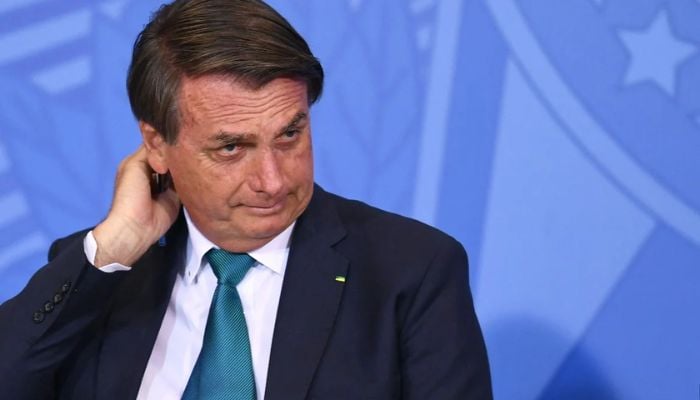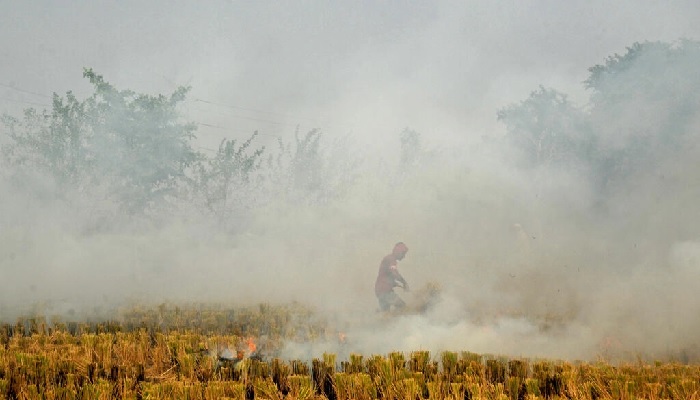Jordan Bardella: heir of France's Le Pen at just 27
Adam PLOWRIGHT
Fri, November 4, 2022
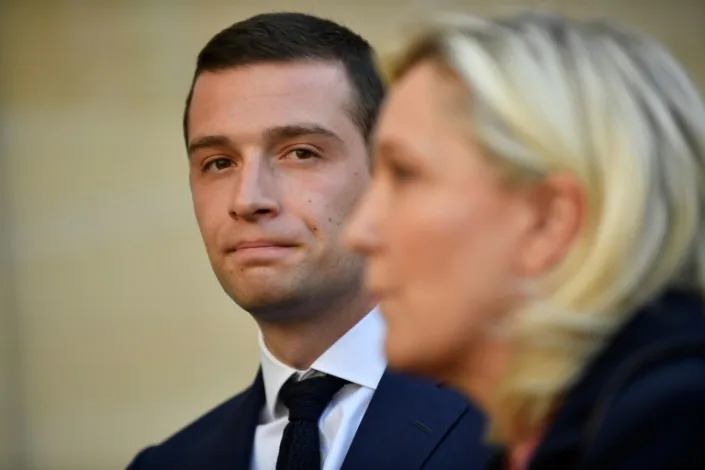
Jordan Bardella, a self-confident 27-year-old, looks set this weekend to confirm he is the rising star of France's far-right politics and the favoured heir to veteran leader Marine Le Pen.
The Paris-born politician is odds-on to be selected by members of the anti-immigration National Rally (RN) party as their new president at a congress on Saturday. Le Pen decided to step back from the role after 11 years at the helm.
Formerly known as the National Front, the party had been run by Le Pen's father Jean-Marie for 40 years before that.
Bardella would be the first party chief outside the family dynasty in a half-century.
"The fact the party president will not have the name Le Pen is the sign of openness and confidence that Marine has in the new generation," Bardella told AFP during a recent trip to eastern France.
Not that the ultra-loyal protege, who was elected to the European parliament in 2019, is planning to try to overshadow her.
"I am a continuity candidate, with the aim of building on the incredible legacy that Marine is handing over," he added.
He expects and wants Le Pen to take a fourth run at the presidency in 2027 after her record 41.5 percent in April's election run-off against President Emmanuel Macron.

She then fronted the party's parliamentary election campaign in June which saw the RN capture 89 seats, a 10-fold rise making it the biggest opposition party in the national assembly.
- 'Drug dealers' -
His only opponent is Louis Aliot, the mayor of the southwestern city of Perpignan who lacks Bardella's profile despite being a party member for more than 30 years.
Le Pen's 32-year-old niece Marion Marechal, long seen as the long-term family successor, is out of the picture having left the party before the presidential vote to back rival far-right candidate Eric Zemmour.
Bardella has been acting president since September 2021 when Le Pen stepped back, supposedly temporarily.
"He's got everything right and is respected by everyone," far-right MP Laurent Jacobelli told AFP at a mid-October campaign stop at Hayange in the Moselle region.
"And he knows how to make different people work together, so why would we change anything?
At the event, Bardella spoke confidently on stage, without notes, for 40 minutes, sharing details about his childhood on the eighth floor of a drab tower block in the crime-ridden Seine-Saint-Denis area northeast of Paris.
He lived with his mother, an Italian immigrant and single mum.
"Every day from my window and when I entered the building I would see that there were drug dealers checking if you were from the police," he said.
There was also an Islamic school across the road, he said.
"I used to see groups of girls aged five, six or seven leaving with veils over their heads," he added.
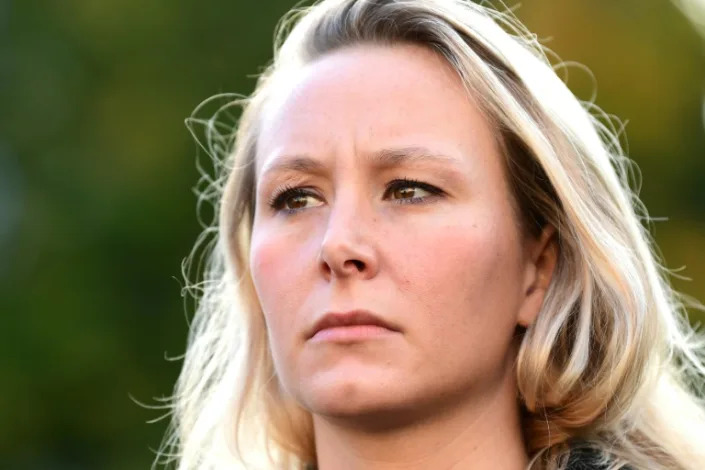
Personal harassment and riots in 2005, led by mostly black and north African youths angry about police violence, pushed him to join Le Pen's party aged just 16.
"I got involved in politics very early because I didn't want the whole of France to resemble what I had experienced," he told the crowd.
- 'Jordan, President! -
Bardella likes to stress that he is from a new generation of nationalists with little in common with the racist, anti-Semitic thuggery associated with Jean-Marie Le Pen and the National Front.
Marine Le Pen has gone to great lengths to try to distance herself from this toxic legacy although critics say racism remains rife at the grassroots level and accuse Le Pen of simply spinning old ideas with new language.
Bardella is the image of the clean-cut and controlled modern party that she now promotes: conspicuously neat, always dressed in immaculate shirts, polished shoes, with hair cut short.
"Without Jean-Marie Le Pen, the National Front wouldn't exist, but without Marine it wouldn't still be here," Bardella told AFP. "She transformed it from having a protest culture to having a culture of government."
- 'Step aside' -
Opponents from within the party, including Aliot, have expressed discomfort with an alleged readiness to embrace ideas espoused by Le Pen's far-right rival the pundit Eric Zemmour.
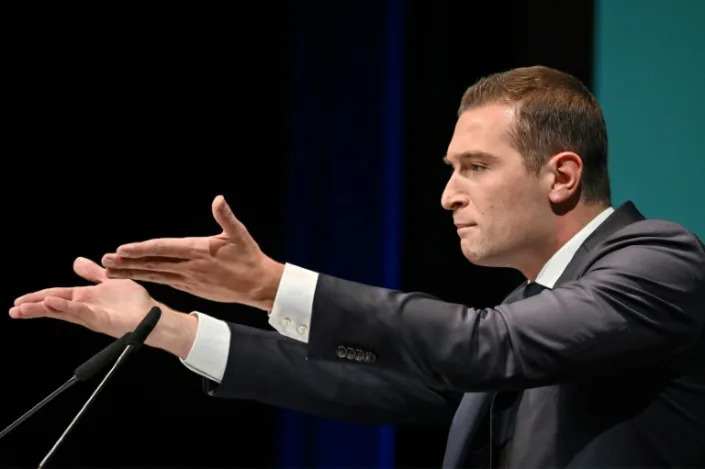
Last year, Bardella came close to embracing Zemmour's mantra of the "Great Replacement", a conspiracy theory that suggests white Europeans are being deliberately replaced by immigrants.
He also hastily backtracked from a plan to attend a demonstration organised by Zemmour's party after the killing of a 12-year-old by an Algerian woman facing expulsion shocked France.
There are also questions over what value the presidency of the RN has for Bardella, given Le Pen formally leads its cohort in parliament and is widely expected to be its presidential candidate in 2027.
But many expect the party position to be a stepping stone.
"At some point Marine will step aside and he's got every chance," said Alice Orsudci, a 52-year-old local business owner watching his campaign tour.
"I don't know if we're allowed to say it, and I don't want to flatter him, but I sincerely believe Jordan will be president one day," said MP Jacobelli.
adp/sjw/bp
